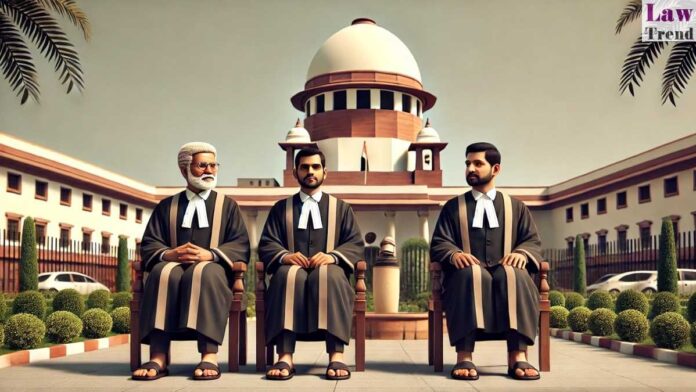A review petition has been filed in the Supreme Court challenging its recent judgment mandating three years of legal practice as an eligibility condition for candidates applying to the post of Civil Judge (Junior Division).
The petition has been moved by Advocate Chandra Sen Yadav in the case titled All India Judges Association and Ors. vs. Union of India, arguing that the May 20 judgment infringes upon fundamental rights guaranteed under Articles 14 and 16 of the Constitution.
Background of the Judgment
A Bench comprising Chief Justice of India DY Chandrachud (Note: factual error in original summary; based on the content, it says BR Gavai is the CJI), and Justices AG Masih and K Vinod Chandran, had directed all High Courts and state governments to amend their judicial service rules to require a minimum of three years of legal practice for eligibility to the Civil Judge (Junior Division) post. The ruling aimed to ensure that entrants to the judiciary possess practical experience before assuming judicial responsibilities.
However, the judgment made an exception for recruitment processes already initiated before the date of the ruling.
Grounds for Review
In the review plea filed through Advocate Kunal Yadav, the petitioner urged the Supreme Court to defer implementation of the new rule until 2027. The petitioner argued that immediate enforcement would unfairly exclude law graduates from 2023–2025 who had prepared for judicial service exams under the previous eligibility criteria.
“Immediate enforcement causes retrospective hardship, violating principles of fairness, legitimate expectation, and equal opportunity under Article 14 of Indian Constitution,” the plea states.
The review petition also contends that:
- The ruling will disproportionately affect aspirants from economically weaker sections, and marginalized communities including SCs, STs, and OBCs.
- No empirical data was presented before the Court to show that fresh graduates or those without three years’ practice have underperformed in judicial service.
- The decision was based on generalized and opinion-based inputs rather than any objective assessment, making it susceptible to review.
- The direction to uniformly amend service rules across all states and High Courts infringes on the legislative and administrative powers of state governments and public service commissions.
Concerns Over Gender and Social Impact
The plea further highlights that the new eligibility requirement may discourage or delay the judicial aspirations of women candidates, particularly those balancing familial or social responsibilities.
Legal education and access to judicial careers are already limited for candidates from disadvantaged backgrounds, the plea notes, adding that the mandated three-year waiting period imposes an additional barrier.
The review petition seeks reconsideration of the Supreme Court’s May 20 ruling and a phased implementation timeline to prevent hardship for current aspirants.
The Court is yet to list the petition for hearing.




